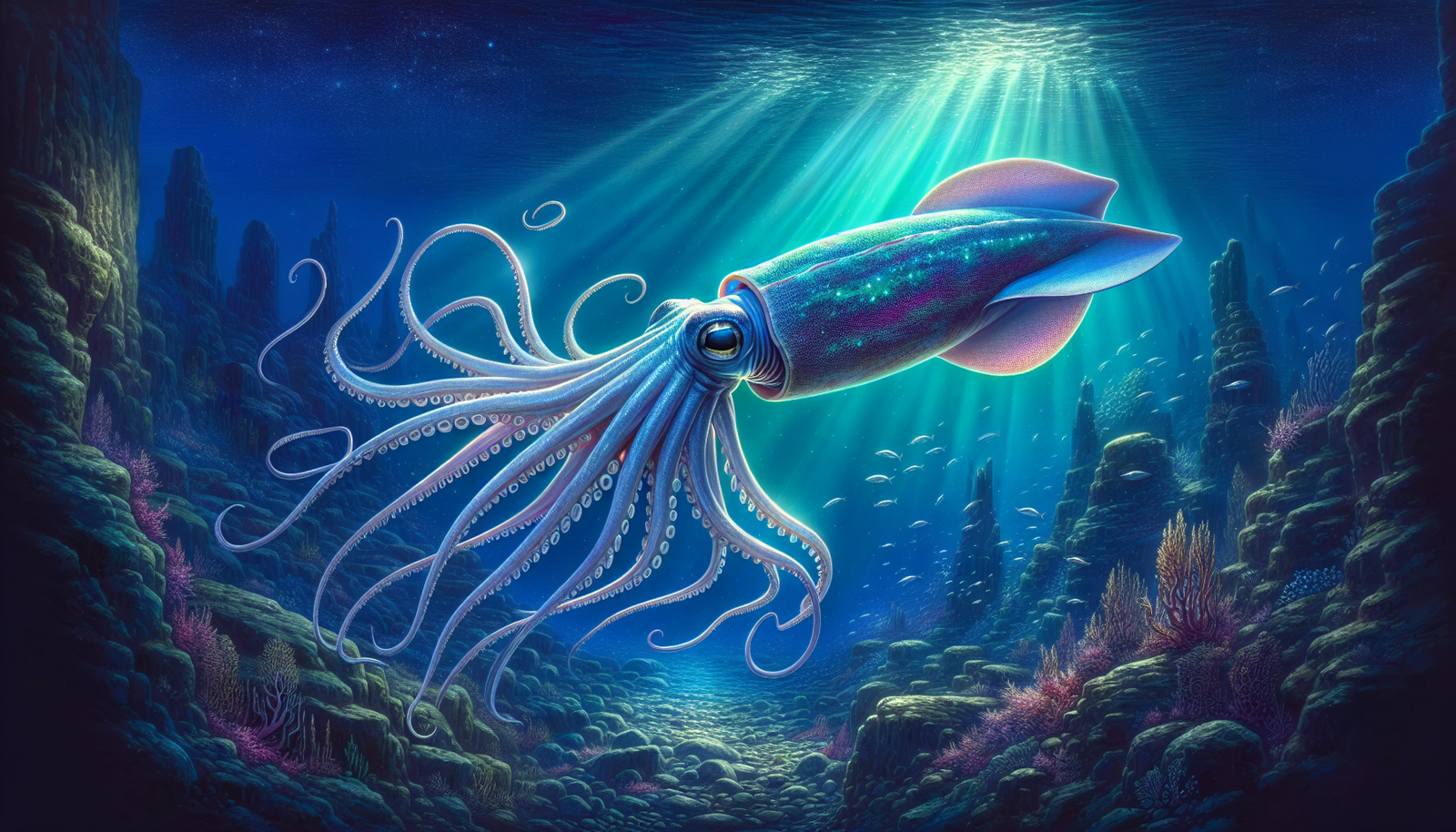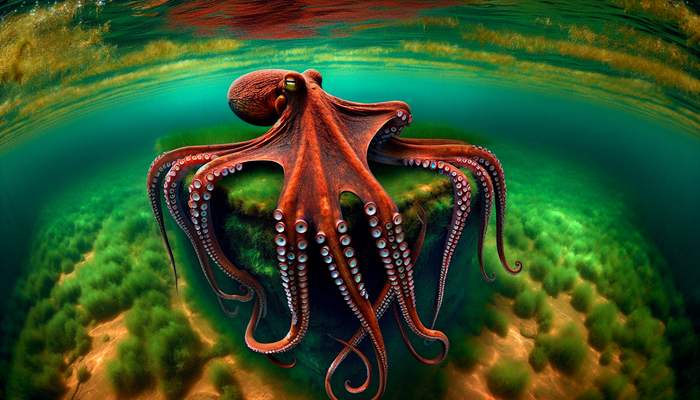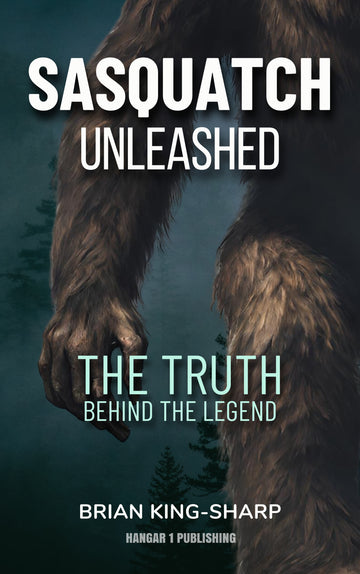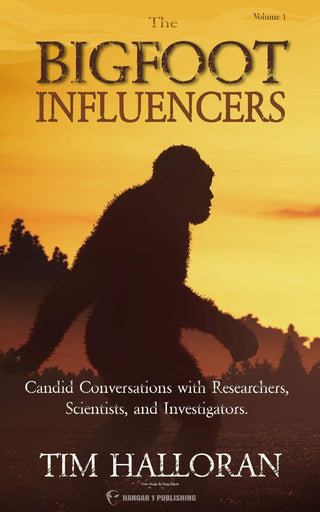Discover the Thrills of MonsterQuest Giant Squid Ambush

By Jack Sullivan, Cryptozoologist
The Giant Squid: Myth Meets Reality
The giant squid, scientifically known as Architeuthis dux, is a creature that seems to have swum straight out of our wildest fantasies. With eyes the size of dinner plates and tentacles that can stretch up to 43 feet in length, it's no wonder this cephalopod has inspired countless stories of sea monsters and maritime peril.
For generations, sailors spoke in hushed tones of encounters with massive, tentacled beasts capable of dragging entire ships beneath the waves. These tales, often dismissed as mere folklore, have their roots in real-life encounters with giant squids. The line between myth and reality blurred as sightings of these creatures, rare but persistent, fueled the imaginations of storytellers and scientists alike.
The giant squid's legendary status isn't just a product of overactive imaginations. Its sheer size – it's one of the largest invertebrates on the planet – and its habitat in the ocean's darkest depths have contributed to its mystique. The creature's elusiveness has made it a prime target for cryptozoologists, researchers who seek evidence of animals whose existence is disputed or unproven.
From Kraken to Scientific Subject
The giant squid's journey from mythical kraken to subject of scientific study is a fascinating tale in itself. The kraken, a legendary sea monster of Scandinavian folklore, was often depicted as a giant squid or octopus-like creature capable of creating whirlpools and dragging ships to their doom. While these stories were clearly exaggerated, they likely originated from real encounters with giant squids.
As maritime exploration expanded and scientific understanding grew, these fantastical tales began to give way to more grounded observations. In the 19th century, the first concrete evidence of giant squids emerged in the form of beached carcasses and remains found in the stomachs of sperm whales. These discoveries sparked scientific interest and set the stage for more focused research efforts.
The MonsterQuest Expedition: Science Meets Adventure
The MonsterQuest episode "Giant Squid Ambush" takes viewers on an exhilarating expedition to the Sea of Cortez, a body of water renowned for its rich marine biodiversity. This location wasn't chosen at random – it's an area where giant squid sightings have been reported, making it a prime spot for a scientific investigation.
The expedition team, composed of marine biologists, oceanographers, and skilled divers, set out with a clear objective: to capture video evidence of the giant squid in its natural habitat. This is no small feat, considering the creature's deep-sea dwelling habits and its reputation for elusiveness.
The use of cutting-edge technology is a highlight of the expedition. Submersibles equipped with high-definition cameras allow the team to explore depths that were previously inaccessible to human eyes. These underwater vehicles are marvels of engineering, capable of withstanding the crushing pressures of the deep ocean while providing a clear view of the surrounding environment.
In addition to submersibles, the team employs an array of sophisticated underwater cameras. Some of these are designed to be lowered into the water on long cables, while others are attached to lures meant to attract the giant squid. The goal is not just to catch a fleeting glimpse of the creature, but to observe its behavior and gather data about its habitat and lifestyle.
The Ambush: Nature's Perfect Predator
The title of the episode, "Giant Squid Ambush," hints at one of the most fascinating aspects of this creature's behavior. The term "ambush" isn't just a catchy phrase – it describes a key hunting strategy employed by the giant squid.
As an apex predator of the deep, the giant squid has evolved a set of highly effective hunting tactics. Its long tentacles, equipped with powerful suckers, are perfect for snatching prey from a distance. But it's the squid's ability to lie in wait, camouflaged against the darkness of the deep sea, that truly makes it a master of the ambush.
This hunting strategy is reminiscent of other ocean predators, like the great white shark or the killer whale. However, the giant squid's method is uniquely adapted to the extreme depths at which it lives. In an environment where light is scarce and prey is often bioluminescent, the ability to strike quickly and decisively from hiding is a crucial survival skill.
Understanding these hunting behaviors is more than just a matter of scientific curiosity. It provides valuable insights into the ecological role of the giant squid. As a top predator, it plays a crucial part in maintaining the balance of deep-sea ecosystems. By studying its hunting tactics, scientists can better understand the complex food webs that exist in these little-explored parts of our planet.
The Science of Cryptozoology: Balancing Skepticism and Wonder
MonsterQuest, as a series, straddles an interesting line between scientific inquiry and the exploration of the unknown. The show's focus on cryptozoology – the search for and study of animals whose existence or survival is disputed or unproven – places it in a unique position to examine creatures like the giant squid.
Cryptozoology often faces skepticism from the mainstream scientific community. Critics argue that it relies too heavily on anecdotal evidence and lacks the rigorous methodology of traditional biological research. However, the search for the giant squid demonstrates how cryptozoology can sometimes lead to legitimate scientific discoveries.
The MonsterQuest episode does an admirable job of balancing the excitement of the hunt with solid scientific principles. While the team is clearly hoping for a dramatic encounter with a giant squid, they approach their task with the methodical patience of true researchers. They collect data, analyze environmental factors, and form hypotheses based on the evidence at hand.
This approach highlights an important aspect of scientific inquiry – the willingness to explore the unknown while maintaining a skeptical, evidence-based mindset. The search for the giant squid serves as a perfect example of how the thrill of discovery can coexist with rigorous scientific methods.
Breakthroughs and New Understandings
One of the most exciting aspects of the MonsterQuest expedition is the potential for new discoveries. In recent years, our understanding of the giant squid has expanded dramatically, thanks in large part to advancements in deep-sea exploration technology.
For instance, in 2004, Japanese researchers captured the first images of a live giant squid in its natural habitat. This breakthrough was followed in 2012 by the first video footage of a giant squid in the wild, filmed off the coast of Japan. These achievements have allowed scientists to observe the creature's behavior and movements in ways that were previously impossible.
The MonsterQuest expedition builds on these successes, aiming to gather even more detailed information about the giant squid's life cycle, feeding habits, and ecological role. Each new piece of data contributes to a growing body of knowledge about these mysterious creatures and their deep-sea environment.
Moreover, studying the giant squid provides valuable insights into the health of our oceans. As a top predator, the giant squid is sensitive to changes in its ecosystem. Understanding its population dynamics and behavior can offer clues about the impacts of climate change, ocean acidification, and other environmental challenges on deep-sea habitats.
Cultural Impact: The Giant Squid in Popular Imagination
Beyond its scientific significance, the giant squid has left an indelible mark on popular culture. From Jules Verne's "Twenty Thousand Leagues Under the Sea" to modern blockbuster movies, the image of a massive, tentacled sea monster has become a staple of maritime fiction.
The MonsterQuest episode taps into this cultural fascination, blending scientific exploration with the thrill of potentially encountering a legendary creature. This approach not only makes for compelling television but also serves to educate the public about marine biology and ocean conservation.
The ongoing fascination with the giant squid speaks to a broader human interest in the mysteries of the natural world. In an age where much of our planet has been mapped and explored, the deep ocean remains one of the last great frontiers. The search for the giant squid represents our enduring desire to uncover the secrets of the unknown.
Looking to the Future
As the MonsterQuest expedition draws to a close, viewers are left with a sense of wonder and anticipation. While the team may or may not have succeeded in capturing footage of a giant squid, their journey highlights the importance of continued exploration and research.
The search for the giant squid is far from over. As technology continues to advance, new opportunities for study and observation will undoubtedly arise. Future expeditions may employ even more sophisticated equipment, such as autonomous underwater vehicles or long-term deep-sea monitoring stations.
Moreover, the lessons learned from studying the giant squid can be applied to the conservation of other marine species and habitats. As we face growing environmental challenges, understanding and protecting the biodiversity of our oceans becomes increasingly crucial.
The MonsterQuest episode "Giant Squid Ambush" serves as a thrilling reminder of the wonders that still await discovery in the depths of our oceans. It challenges us to look beyond the surface, to question what we think we know, and to approach the unknown with a spirit of scientific inquiry and adventure.
Whether you're a marine biology enthusiast, a fan of cryptozoology, or simply someone who loves a good mystery, the search for the giant squid offers something to captivate the imagination. It's a quest that combines cutting-edge science with the age-old human desire to explore the unknown – a perfect blend of knowledge and wonder that continues to inspire researchers and dreamers alike.
As we continue to push the boundaries of ocean exploration, who knows what other secrets we might uncover in the vast, mysterious realm beneath the waves? The giant squid may be just the beginning of a new era of marine discovery, inviting us to dive deeper into the fascinating world that lies hidden beneath the ocean's surface.
From Bigfoot to UFOs: Hangar 1 Publishing Has You Covered!
Explore Untold Stories: Venture into the world of UFOs, cryptids, Bigfoot, and beyond. Every story is a journey into the extraordinary.
Immersive Book Technology: Experience real videos, sights, and sounds within our books. Its not just reading; its an adventure.



























